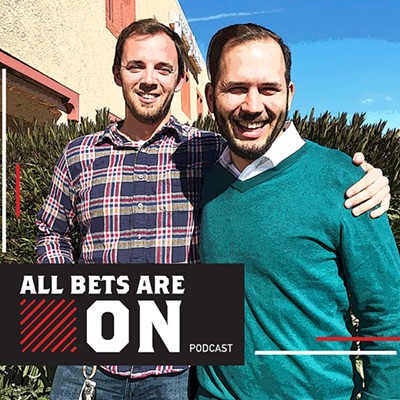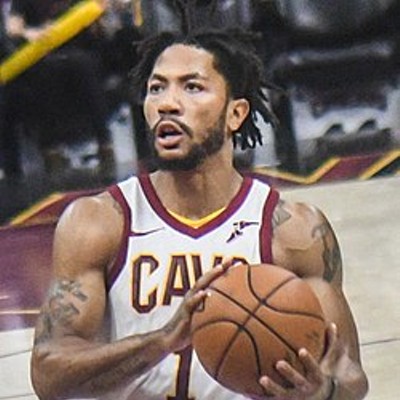I hate the NBA. There's no point in painting it with fancy words—I simply find professional basketball to be the most unwatchable game around, even more than seniors tennis.
Any sport where the vast difference in effort given during the regular season versus the postseason results in playoffs resembling offense-averse sludge fests is not high on my list. Give me the start-to-finish intensity of pretty much anything else. Even NASCAR.
But keeping an eye on the National Basketball Association is an occupational hazard for those of us who get paid to watch and write about sports. I know, pity me.
That means it's necessary from time to time to check in on how the Phoenix Suns are doing. So in case you hadn't noticed—and judging by the attendance, you haven't—that once proud franchise has now found itself among the has-beens of the NBA.
And it almost seems like they're fine with that.
We're talking about a team that as recently as May 2010 was in the Western Conference semifinals. But now, entering the final week of the 2012-2013 regular season (the final games were played Wednesday, April 17), the Suns had the third-worst record among 30 teams.
With two games to go, the Suns had won just 24 times. Out of 80. A 30 percent success rate. That's great if that's your batting average, but not if you're a team.
But all signs point to the Suns wanting this to happen this year, something that sadly is a regular occurrence in the NBA because of its strange, more-complicated-than-tax-law salary cap rules and its over-reliance on annual reinforcements pillaged from the college ranks. Ever since Phoenix re-signed fan favorite Steve Nash last summer solely for the purpose of trading him to the Los Angeles Lakers, everything this team has done has been with the 2013-14 season in mind. Or even further beyond that.
Phoenix's payroll for this season was 27th in the league, but nothing I've read from NBA beat writers (shout-out to Paul Coro from The Arizona Republic; he's done a great job chronicling this team's foibles) indicates the Suns plan to make any effort to improve quickly by signing or trading for standout players.
Instead, Phoenix plans to try and get better via the draft, and the class coming out of college is among the least spectacular in recent memory. Most draft projections have the Suns picking third (assuming the ping-pong balls pop out of the lottery draft pop-o-matic as expected) and taking a point guard, the same position they drafted for last year.
Yeah, that guy (Kendall Marshall) spent much of the season in the NBA's version of the minor leagues, and for the year has averaged less than three points and three assists a game. Great choice.
The Suns are one of a dozen or so NBA teams that have spent much of the last month or two tanking as much as possible, an annual practice in hopes of landing that big college or international star who will turn things around. And because of this, those teams somehow forget about all of the other ways to improve themselves, and as a result put such a poor product on the court that it's no surprise that fans don't want to watch.
Phoenix averaged about 15,400 fans this season at US Airways Arena, which amounts to about 84 percent capacity, 21st in the league. Only two of the teams with lower average capacity (Atlanta and Milwaukee) are headed for the playoffs, and those cities traditionally haven't been too supportive of their pro hoops teams.
Not so for Phoenix, which as recently as 2008-2009 was at 100 percent capacity and had been in the high 90s in that category every season between 2007 and 2011.
Then again, in those years the Suns appeared to be trying to win, not trading away someone like Nash for four draft picks that likely won't amount to anything while at the same time bringing in way-past-their-prime veterans like Jermaine O'Neal, whose most lasting contribution to this season was his suspiciously tankish decision to commit goaltending on a game-winning three-pointer last week.
I'm sure the Suns ownership, led (or misled, depending on your point of view) by Tucsonan Robert Sarver, is still hitting whatever profit margin numbers they expected for this season, so I wouldn't hold out hope that anything is going to change in terms of the franchise's approach. They've probably decided that, after years of having players that fans would want to pay good money to watch (e.g., Nash, Amare Stoudemire, Shawn Marion, Shaquille O'Neal—even Charles Barkley way back when), there's still plenty of profit to be made from just sending out five guys named Joe. Or, in the NBA, D'Quan or FuMarvious.
Having a team without stars and name power can work in other pro leagues, but not in the NBA. The best teams have recognizable names—it's the NBA way: Market the players, not the teams—and thus are successful both on the court and at the ticket booth.
Until Sarver and his ownership group wise up, though, Suns fans can take solace in knowing that there's no reason for them to have to suffer through watching NBA playoff games and contemplating how 10 teams that averaged 100-plus points a game during the regular season can struggle to average 85 come the postseason.





